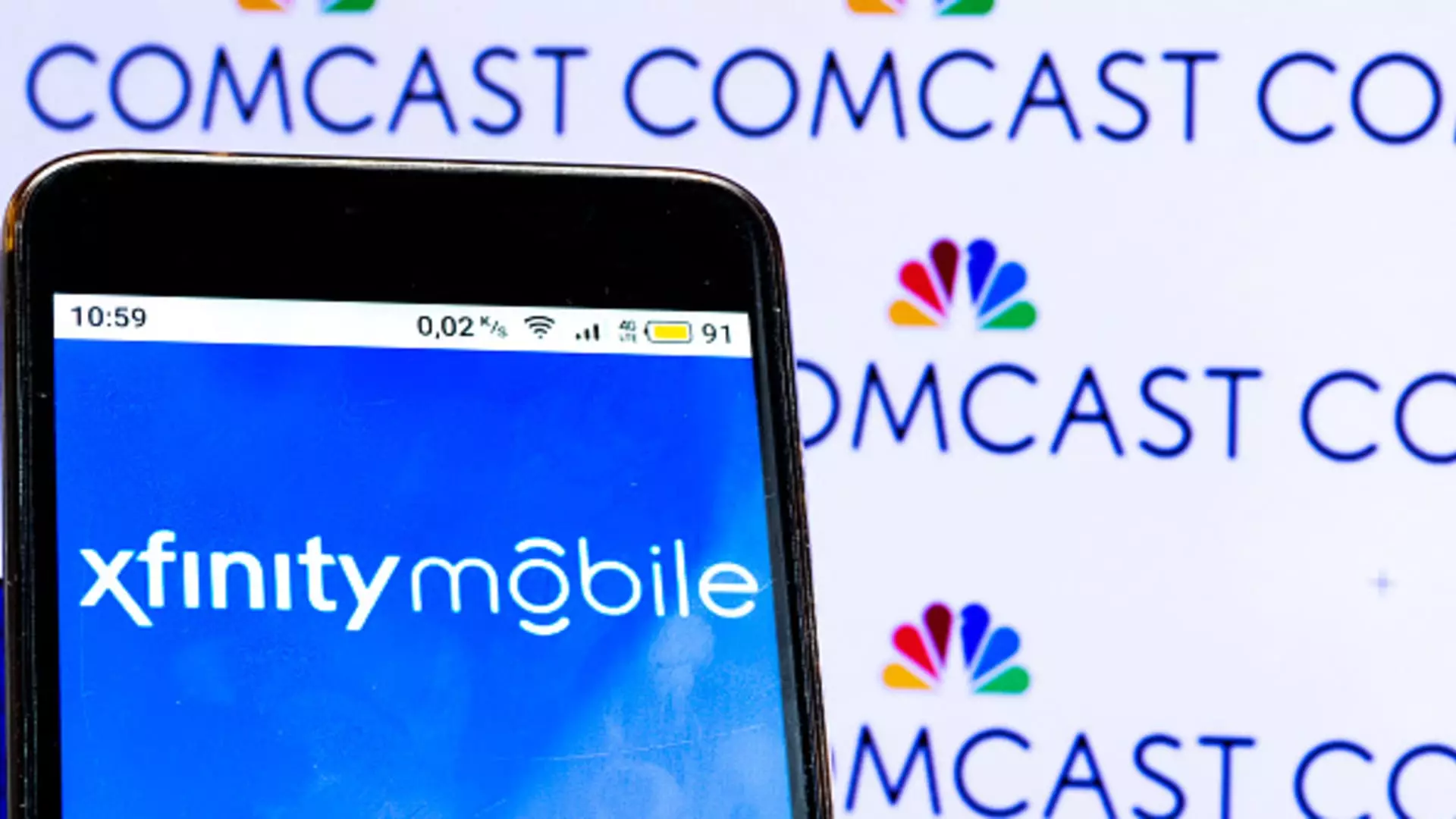Transformative Strategies: 5 Ways Comcast’s Xfinity Mobile Arena Rebrands the Future of Sports and Entertainment

In a bold move reflecting contemporary branding strategies, the Philadelphia home of the NBA’s 76ers and NHL’s Flyers has been renamed to the Xfinity Mobile Arena, leaving behind its former identity as Wells Fargo Center. This change is not merely cosmetic; it speaks volumes about the evolving dynamics of sports sponsorship and the increasing necessity for organizations to adapt in a highly competitive market. The rebranding effort is symbolic of Comcast’s broader strategy to reposition its identity in the rush of market shifts, particularly as it aims to capitalize on the lucrative mobile sector that once served merely as a retention mechanism for broadband services.
The decision to rename the arena rises from Comcast Spectacor and Harris Blitzer Sports & Entertainment’s partnership, emphasizing a synergy that underscores the digital revolution that permeates our lives. While the financial specifics remain undisclosed, the implications of such a rebranding extend beyond mere nomenclature—it marks a decisive pivot toward an ambitious vision that acknowledges the growth of mobile technology in the sports and entertainment sectors.
Strategic Focus on Mobile Growth
Comcast’s trajectory in the mobile business has been impressive. In just a few years, Xfinity Mobile has accumulated approximately 8.15 million lines, demonstrating a customer base that is steadily increasing—even amidst the backdrop of stagnation in broadband subscriptions. This shift in focus from traditional cable services to mobile has become a beacon of hope for Comcast in an era where cord-cutting remains rampant.
As Comcast expressed during their latest earnings call, the shift from merely a retention tool to a standalone profit center underscores the significance of the mobile strategy in its corporate ambitions. More so, by attaching the Xfinity name to a major sporting venue, Comcast aims to promote brand visibility and loyalty, elevating its profile in a marketplace dominated by industry titans like AT&T and Verizon.
Enhancing Fan Experience through Technology
The rebranding initiative doesn’t merely serve Comcast’s financial objectives; it places a premium on fan experience as well. Equipped with upgraded Wi-Fi services, the Xfinity Mobile Arena will ensure that attendees remain connected, enhancing their experience during games and events. In a hyper-connected age, the premise of a seamless digital experience has become imperative. Current Xfinity Mobile customers gaining automatic access to Wi-Fi at no extra charge speaks to a clear intent to integrate services while ensuring that customer satisfaction remains high.
One must wonder, however, if this strategy is a result of genuine concern for the fan experience or a calculated move to leverage technology for further market penetration. While it’s certainly advantageous for fans, the underlying motive aligns seamlessly with Comcast’s expansive ambitions in mobile networking.
A Competitive Edge in a Saturated Market
In a saturated telecommunications landscape, where cable giants like Charter Communications are aggressively pursuing promotional strategies to land new subscribers, Comcast’s renaming endeavor offers a competitive edge. By associating the Xfinity brand with Philadelphia’s fervent sports culture, they’re tapping into the emotional affinity that sports fans have towards their teams—an emotional tether that transcends traditional advertising methods.
However, the approach presents certain risks. While a gamble on heightened brand recognition may pay off, it also risks alienating loyal customers of the former naming sponsor, Wells Fargo. Brands rooted in local history often carry their own weight and legacy—an uphill battle that Comcast must navigate carefully.
Future Implications for Urban Sports Venues
As a precursor to a newly developed arena set to debut in the 2031-2032 season, the Xfinity Mobile Arena could set a trend for how urban sports venues operate in relation to corporate sponsors in the future. With naming rights yielding significant revenue streams, cities may see a proliferation of brands clamoring not just for visibility but for partnerships that speak to modern consumer values.
In essence, the rebranding of staple venues such as Philadelphia’s demonstrates a dual function: it elevates the local experience while marking the start of a corporate battle for dominance in a market that is as much about emotional connection as it is about services offered. As Comcast steps into this new chapter, it will be intriguing to observe how this arena—and others that follow suit—shapes consumer engagement and loyalty in an increasingly digital world.
Comcast’s venture demonstrates that rebranding, when executed wisely, can be a powerful narrative shift that aligns corporate strategy with consumer sentiment. Now, more than ever, companies must understand that identity is not just about a name; it’s about building a resonant experience that aligns with values, expectations, and aspirations.





